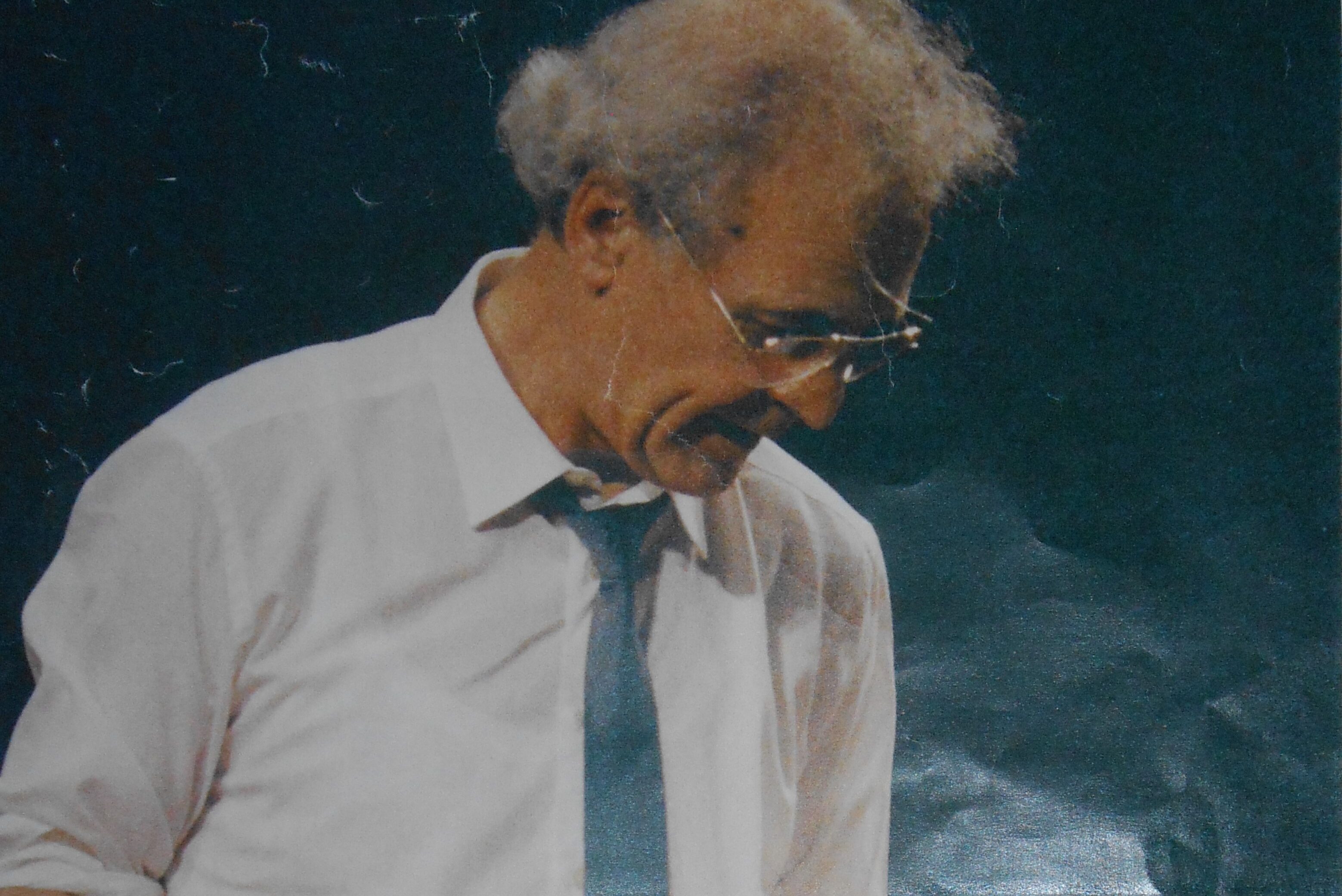
I consider with pleasure, and with a hint of pride, Father Ruggero Luigi Pitton one of my teachers.
I’m writing about him now that he has passed away, it’s no coincidence: he was not a name of the “star system” of classical music, either for the years that have passed since his successes in choral competitions, or for the profile that he has always characterized him, being that kind of musician who focuses on music, not the performer.
As a child I sat on the steps behind the male sections of the Cappella Musicale Monteberico and, with my arms, I imitated his soft gestures, in silence, arousing the smiles of tenderness of those who saw me. He saw me too, but he didn’t get angry; on the contrary, from being so gruff as he had been with the singers up to that moment, he melted into a smile of complicity.
In the early years of the conservatory I went to him to perfect my knowledge of music theory. I remember his impeccable, academic lessons, which had only a start time, not an end one: it was enough a minute late in my arrival, an imprecise scale, a badly marked triplet, a forgotten sheet, to lengthen the lesson by a hour or more: what was needed, to educate me and for me to learn.
When I had the chance to really learn something of his conducting gestures and his musical knowledge, the CMMB – “his” Monteberico Music Chapel – was only the memory of the wonders expressed in the past and even his voice broke in singing. His passion never broke.
It was he who directed me to the first masterclass in choir conducting, after having given me the first teachings on the disposition of the singers, on the choice of pieces for the liturgy, on ancient sacred music. I cherish his letter of introduction to the courses of the Accademia Musicale Chigiana: his name will not have said anything to most; it would have been enough if they had seen the photos of the international competitions – won many times – that stood out in the headquarters of Santa Caterina, first, and then of Monte Berico.
Far be it from me to sanctify him today (I’m no one to do it and he wouldn’t want it either), but he was a man who “rejoiced in the Lord”, and he was “cool”: may this expression be granted to me today which, better than any other, explains how a photo of him could have found space in a teenager’s room, between the poster of an athlete, the photo of an actress and the effigy of a leader. The loose tie, the bunch of keys on the belt, the digital watch on the wrist, the disheveled hair, the beautiful look: a caretaker of music, a maestro. My first teacher.


